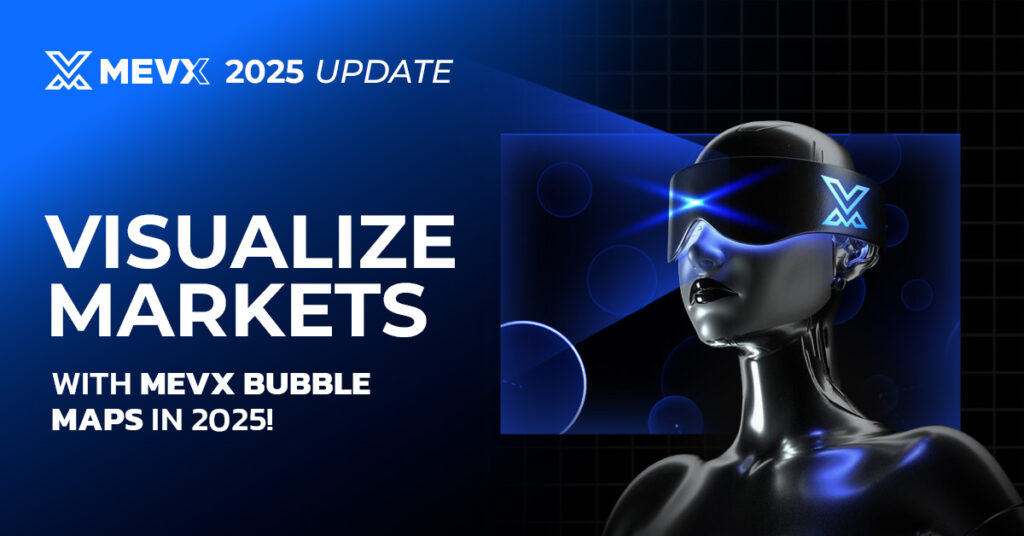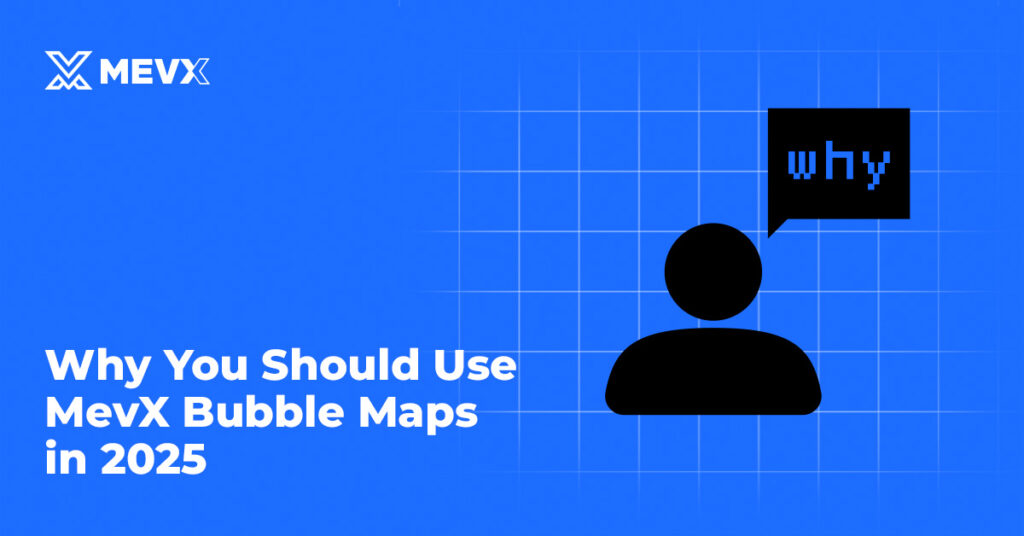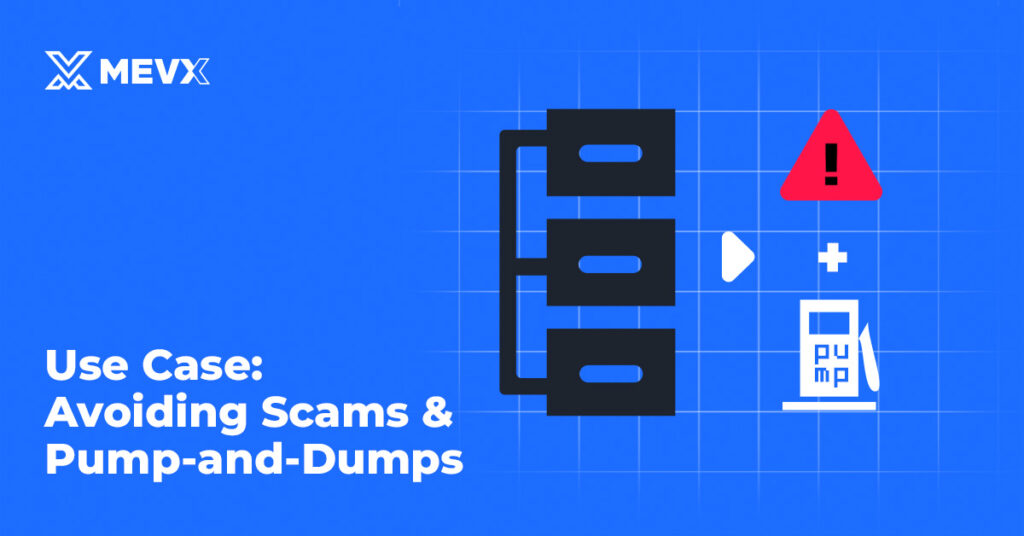In the ever-accelerating world of memecoin trading, reading the chain quickly and accurately can be the difference between catching a moonshot and getting rugged. In 2025, wallet activity is just as important as price action, and now you can see it all in one visual glance with MevX Bubble Maps.

Bubble Maps offer a game-changing way to understand token holder behavior, wallet clustering, and distribution risk without digging through endless hash records.
What Are MevX Bubble Maps?
MevX Bubble Maps provide a real-time, visual representation of token holder data, built to help traders identify concentration risks, wallet relationships, and abnormal activity at a glance.
Each bubble on the map represents a wallet. The size, color, and position of each bubble convey different insights:
- Larger bubbles = wallets holding a significant portion of the token supply
- Same-colored, connected bubbles = wallets that are likely related (same owner or bot behavior)
- Small, isolated bubbles = typical retail wallets or small investors
This transforms what used to be an obscure list of wallet hashes into an intuitive, visual heatmap of influence and risk.
Why You Should Use Bubble Maps in 2025
With token launches happening every hour on Solana and memecoin culture thriving, it’s critical to know who’s in the game before you buy in.

Bubble Maps can help answer key questions instantly:
- Is this token dominated by a single whale or distributed across many holders?
- Are there suspiciously connected wallets suggesting bot farming or manipulation?
- Is the liquidity really safe, or could one wallet pull the rug?
In 2025, these aren’t optional checks—they’re required survival tools for traders navigating volatile new listings and coordinated pumps.
How to Read Bubble Maps on MevX
The power of Bubble Maps lies in their simplicity:
1. Identify Concentration Risks
Big, centralized bubbles usually mean a small number of wallets control most of the supply. That’s a red flag for potential rug pulls or price suppression. Multiple medium-sized bubbles? That’s a healthier distribution.
2. Detect Related Wallets
Same-colored bubbles linked by visible connectors indicate wallet relationships. Whether they’re multi-wallet setups or automated bots, these clusters can artificially inflate volume or mislead retail traders.
3. Spot Retail Behavior
When you see a spread of unconnected, small bubbles, that’s often a sign of real retail interest. These are tokens organically spreading across the community—an early signal of memecoin momentum.
4. Act with Confidence
Instead of guessing based on Telegram hype or DEX price action, Bubble Maps let you make decisions backed by holder-level transparency.
Use Case: Avoiding Scams & Pump-and-Dumps

Say a new token is trending on MevX. Before you ape in, you open the Bubble Map and see a giant bubble holding 42% of supply, with five smaller but connected bubbles holding another 30%. That’s not decentralization—it’s a trap.
Bubble Maps allow you to catch these setups before the liquidity vanishes.
On the flip side, if you see wide token distribution and no suspicious clusters, it might be a green light to proceed, especially if paired with buying from high-performing wallets (as seen via other MevX tools).
Conclusion: Trade Smarter with Visual Data
In a space where information moves faster than any chart can update, visual clarity is alpha. MevX Bubble Maps offer that clarity, turning raw blockchain data into actionable insight.
Whether you’re scouting new tokens, vetting wallet activity, or dodging manipulation, Bubble Maps help you see the battlefield before stepping in.
In 2025, that’s not just helpful—it’s essential.
Share on Social Media:
